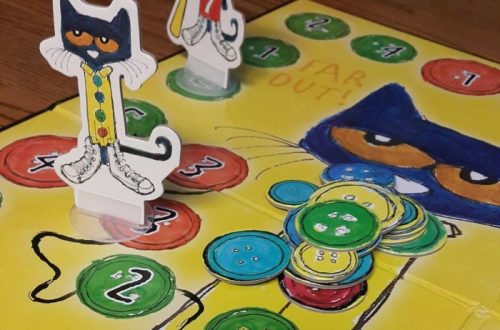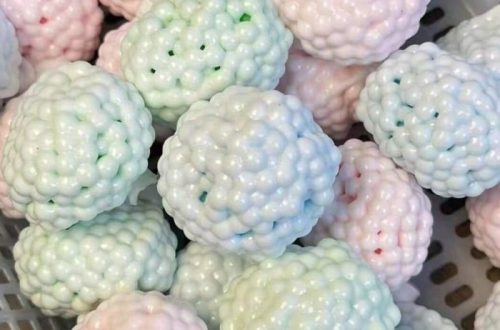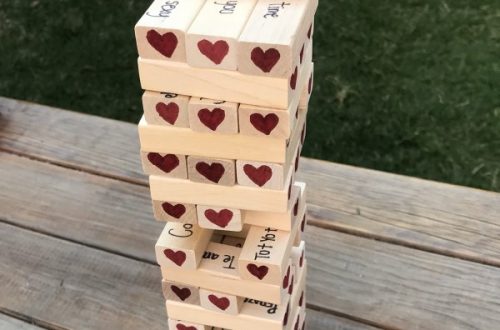Introduction
Completing a jigsaw puzzle can be incredibly rewarding. You’ve spent hours assembling colorful pieces, lost in concentration and the joy of creating a picture from chaos. Once you finally place the last piece, you may feel a sense of fulfillment, but then the question arises: What to do with puzzles when done? Many people leave their completed puzzles in a box, but with a little creativity and effort, your finished puzzles can transform into unique pieces for your home or gifts for loved ones. This article will explore five creative uses for puzzles once they are complete, ensuring that your hard work continues to bring joy and beauty.

Turn Your Puzzle into Wall Art
Completing a puzzle brings a sense of achievement. But what to do with puzzles when done? Transform them into stunning wall art! This idea is both simple and creative. Here’s how to do it:
Choose the Right Puzzle
Pick a puzzle with a design that matches your decor. Think about colors, themes, and sizes that fit your space well.
Secure the Puzzle Pieces
Once your puzzle is complete, use a puzzle conserver to glue the pieces together. Make sure every piece is secure. This step ensures your puzzle stays intact on the wall.
Frame Your Masterpiece
Choose a frame that complements your puzzle. It should enhance its appearance without overshadowing the puzzle’s design.
Add A Hanging Mechanism
Attach a strong hanging mechanism to the back of the frame. Make sure it can support the weight of the puzzle.
Display with Pride
Find the perfect spot on your wall, hang your framed puzzle, and enjoy your new piece of art. Your guests will surely admire your creativity.
This use of puzzles not only decorates your home but also preserves memories. It’s a unique way to share the joy of puzzling with everyone who visits.
Create a Unique Coaster Set
Wondering what to do with puzzles when done? Craft a coaster set! It’s a fun, eco-friendly craft. Follow these steps:
Select Puzzles with Smaller Pieces
Choose puzzles with small pieces for a smooth surface. They’re best for coasters.
Cut to Coaster Size
Measure and cut the puzzle to fit a coaster mold. Standard size is good.
Seal the Puzzle
Apply mod podge or a clear sealant. This protects the puzzle from moisture.

Attach to a Base
Stick the sealed puzzle onto a cork or wooden base for sturdiness.
Add Protective Feet
Place small felt pads or silicone dots on the base. This prevents scratches on tables.
Enjoy Your Creation
Use your puzzle coasters at home. They’re great conversation starters at parties too.
Make a Puzzle Serving Tray
Wondering what to do with puzzles when done? Try making a puzzle serving tray. It’s practical, stylish, and a conversation piece at gatherings. Here’s how to craft your own:
Select a Large, Vibrant Puzzle
Choose a puzzle with bold colors and a captivating design. Large puzzles work best for trays.
Glue the Pieces Together
Once completed, glue the pieces firmly together. This will be the tray’s base.
Assemble a Tray Frame
Find a wooden tray frame that fits your puzzle base. Attach the puzzle to the frame.
Apply a Protective Layer
Cover the puzzle with a clear resin or glass sheet to protect it from spills and stains.
Attach Handles for Easy Carrying
Fix handles on either side of the tray for convenient carrying.
Enjoy Serving in Style
Use your unique puzzle tray for serving snacks or drinks to your guests. It’s both beautiful and functional.
Design Custom Greeting Cards
Turning completed puzzles into greeting cards adds a personal touch to any occasion. To create these unique cards, follow these easy steps:
Select Suitable Puzzle Images
Choose puzzle pieces with images that suit the event. Look for vibrant colors and meaningful patterns.
Cut to Fit Card Size
Trim the puzzle to fit the size of your greeting card. Make sure the edges are neat.
Attach to Cardstock
Use a good-quality adhesive to secure the puzzle piece onto a blank cardstock.
Decorate with Messages or Accessories
Add a heartfelt message or embellish with ribbons or stickers for a finishing touch.
Send or Gift Your Custom Card
Mail your puzzle card or give it personally. It’s sure to be a memorable keepsake.
Designing greeting cards from puzzles is another creative idea to repurpose puzzle pieces. It shows thoughtfulness and can be customized for any event. Whether it’s a birthday, anniversary, or just a simple note of thanks, a puzzle greeting card is one-of-a-kind. You craft something beautiful while recycling and enjoying the fun of puzzling all over again.

Construct Educational Tools for Children
Transforming completed puzzles into educational tools is a fantastic way to blend fun with learning. By creatively repurposing puzzles, you can enhance children’s educational experiences while simultaneously keeping them entertained. Here are some effective ways to convert your puzzles into playful learning materials for kids:
Create Alphabet Puzzles
Select puzzles that feature large, clear letters, ensuring they are easily recognizable to young learners.
Use these puzzles to teach the alphabet by encouraging children to identify letters and their corresponding sounds.
Engage kids in activities that encourage letter recognition—like matching capital letters with lowercase ones or arranging letters to form simple words.
Design Number Puzzles
Opt for puzzles that incorporate numbers prominently in their design to facilitate learning about numerals and counting.
Use these puzzles to introduce basic math concepts, such as counting, addition, and subtraction, through hands-on interaction.
Encourage kids to arrange the numbers in order and practice counting objects associated with each numeral for reinforcement.
Make Shape-Matching Games
Cut puzzle pieces into various shapes to create a fun and interactive way for children to learn about geometric figures.
Organize activities where kids can identify and match shapes, enhancing their spatial awareness and recognition skills.
Introduce concepts such as symmetry and sorting by encouraging children to group shapes based on different attributes.
Craft Color Recognition Puzzles
Choose puzzles that feature distinct and vibrant colors, ideal for teaching young minds about color recognition.
Use these puzzles in games where children identify colors, mix them, or find items around the house that match specific colors.
Incorporate art projects that involve coloring or painting to deepen their understanding of color combinations and contrasts.
Develop Memory Games
Transform puzzle pieces into cards that can be used to play memory games, helping children improve their concentration and memory skills.
Lay out the pieces face down, allowing kids to take turns flipping them over and matching pairs. This encourages cognitive development and social interaction.
Enhance the challenge by using themed puzzles that incorporate words, shapes, or colors to make the game more engaging.
Utilizing puzzles as educational tools not only captivates children’s attention but also fosters the development of cognitive skills through playful learning experiences. These activities promote critical thinking and problem-solving while enabling children to enjoy an interactive approach to education. Moreover, repurposing puzzles is a sustainable way to give new life to unused items, making it an excellent practice at home or in the classroom. By integrating these playful learning materials, you can create a stimulating educational environment that encourages exploration and growth in children.

DIY Puzzle Furniture and Decor
Wondering what to do with puzzles when done? Create unique furniture and decor! It’s resourceful and adds a personalized touch to your home. Here are some innovative ideas:
Refashion a Tabletop
Give an old table a fresh look with a puzzle finish. Choose a puzzle that speaks to your style. Adhere it onto the tabletop, then seal with a clear coat. Now you have a custom conversation piece!
Decorate a Bookshelf
Enhance your bookshelf by backing it with puzzle pieces. This adds color and interest. Cut the puzzles to fit the shelves, glue them on, and enjoy the new vibe.
Construct a Wall Clock
Use a puzzle with a striking design to make a wall clock. Secure the pieces together and mount a clock mechanism. It’s not just timely; it’s a statement piece.
Revamp Cabinet Doors
Transform the look of your cabinets by adding puzzle fronts. Pick colorful puzzles, glue them on doors, and coat them. Your furniture will stand out in any room.
DIY furniture and decor projects are perfect for those asking, ‘what to do with puzzles when done?’ They allow you to enjoy your hobby in new, functional ways. Plus, it’s a great conversation starter with friends and family!
Personalize Your Photo Album or Scrapbook
Using completed puzzles to enhance your photo albums or scrapbooks is a creative and playful way to preserve your memories. This method not only adds unique texture but also infuses your keepsakes with a sense of fun. Here’s how to get started:
Choose Puzzles with Meaningful Images
Select puzzles that depict images or scenes that resonate with significant moments in your life, such as family vacations, celebrations, or favorite places.
This connection ensures that each piece tells a story, making your scrapbook or photo album more personal and meaningful.
Trim the Pieces to Fit
Carefully cut down puzzle pieces to various sizes that will fit well within the pages of your album or scrapbook.
Use sharp scissors or a craft knife for clean edges, ensuring the pieces are manageable and suitable for your chosen layout.
Create Themed Backgrounds
Utilize puzzle pieces as colorful and textured backgrounds for your photos.
Layer the puzzle pieces behind images or other elements to add depth and visual interest to your layouts, creating eye-catching designs.
Decorate Pages with Puzzle Borders
Frame your photos with borders made from connecting puzzle pieces, enhancing the overall aesthetic of your pages.
This unique border style provides a whimsical touch, cleverly integrating the completed puzzles into visual storytelling.
Add Puzzle Quotes or Messages
Use larger puzzle pieces as canvases for inscribing your favorite quotes, messages, or memories.
Position these pieces within your album to create focal points or to highlight specific themes or emotions in your storytelling.
Combine with Other Embellishments
Mix and match puzzle pieces with other decorative elements such as stickers, ribbons, buttons, or hand-drawn illustrations to amplify visual appeal.
The combination of textures and materials will make your pages pop, ensuring they are vibrant and engaging.
Personalizing your photo albums or scrapbooks with puzzle pieces gives your keepsakes an original and creative twist. It’s an enjoyable way to repurpose items that hold memories and spark joy. As you flip through the beautifully decorated pages, the nostalgia of puzzling comes back to life in a fresh and artistic manner, making each turn of the page an exciting journey through your cherished memories.

Gift Them to Fellow Puzzle Enthusiasts
Gift completed puzzles to friends who love a good challenge. It’s a thoughtful gesture. Here are effective ways to do it:
Choose Puzzles with Care
Select puzzles that match the interests of your recipients. Think themes they love.
Rebox with a Personal Note
Place the pieces back in the box with a note. Share why you chose it for them.
Consider the Puzzle’s Condition
Gift puzzles in good condition. Ensure all pieces are present.
Create a Puzzle Exchange Event
Host a swap meet with friends. It’s fun to trade puzzles and stories.
Donate to a Community Center
Share puzzles with local centers. They offer fun activities to various age groups.
Donating or gifting puzzles creates joy and strengthens community bonds. It’s a beautiful way to keep the puzzling spirit alive.
Conclusion: Keep the Creativity Alive
In conclusion, knowing what to do with puzzles when done opens up a world of creative possibilities. From framing your work as art to crafting functional items or sharing with others, the options are plentiful. Each method of repurposing your puzzles helps to maintain the joy you’ve found in assembling them while continuing to showcase your creativity.
By embracing these ideas, you ensure that your completed puzzles don’t simply gather dust in a corner. Instead, they transform into cherished keepsakes, practical items, or shared experiences that keep the spirit of your puzzle-solving adventures alive. So gather those finished pieces, and explore the incredible ways to give your puzzles a second life!




